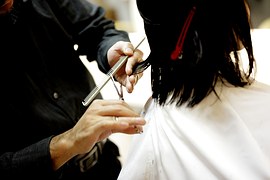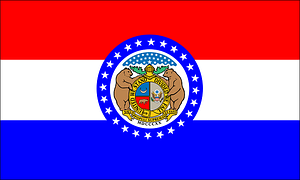What do your characters sound like? Can you hear their voices?
If they aren’t speaking to you, you may not be writing fully developed characters.
I thought I knew my characters for Brain Storm, my new hardboiled Angela Richman death investigator mystery. They’d been in my head for two years. I was working on the copyedited manuscript when the questionnaire for the Brain Storm audio book landed in my e-mail box. The audio version of Brain Storm will be out this August.
The producer’s questionnaire has six questions.
Naturally I whined. I’m a writer, right? But when I answered the audio questions, I realized I’d been given a gift.
The first question said, “Is there anything about the main character or other significant characters in your book that you would like us to know before we begin the casting process?”
Sure, I could describe my characters – all 19 of them. I knew what they looked like, who they married, how many children and divorces they had. I knew their successes and disappointments. I’d created them.
Then the audio producer asked, “Please describe the specific accents (regional, national, international) you expect to hear.”
Easy. Brain Storm is set in mythical Chouteau County, Missouri, ten square miles of white privilege near St. Louis. This is the eastern side of the state, where Missouri is pronounced “Missour-ee.” It’s called “Missour-uh” on the other side. I once heard a tape of a guy campaigning for governor. The slick called our great state Missour-uh when he was speaking in Kansas City, on the west side, and Missour-ee in St. Louis.
I wrote to the audio producer that Missouri was a border state in the Civil War, but my local characters would have Midwestern accents, not Southern ones.
I described the tone and the narrative point of view. Then I went back to the copyedits.
And continued reading about Dr. Jeb Travis Tritt, a brain surgeon. I‛d described this important character as having a soft Kentucky accent. Except at least once in the book, I said Dr. Tritt was “loud.” He’s not supposed to talk that way. I got rid of that misleading “loud,” and Dr. Tritt was once more himself.
 Then there was the hair stylist, Mario. In the questionnaire, I described him as a “talented, compassionate man who wants to do make-overs on every woman he meets. Gay and extremely handsome. Speaks English with a slight Cuban accent.”
Then there was the hair stylist, Mario. In the questionnaire, I described him as a “talented, compassionate man who wants to do make-overs on every woman he meets. Gay and extremely handsome. Speaks English with a slight Cuban accent.”
But as I read the manuscript, I realized that description wasn’t clear enough. How would the voice talent read Mario‛s part? The hair stylist was important to Brain Storm. In my mind, I saw Mario, dressed in fashionable black. Then I heard him speak — and hoped the voice talent wouldn‛t fall for the gay hair stylist stereotype. So I explained Mario was gay, but not stereotypically flamboyant.
 As I read through the copyedited manuscript, I not only saw my characters – I heard them. And noticed sometimes they didn’t quite sound like themselves.
As I read through the copyedited manuscript, I not only saw my characters – I heard them. And noticed sometimes they didn’t quite sound like themselves.
This was not a major rewrite, just little tweaks. Katie the assistant medical examiner cussed constantly. I had to explain that she wasn’t really foul-mouthed – her swearing “was more stylish than obscene.”
One by one, I listened to each character. And decided that audio questionnaire wasn’t extra work.
It was sound advice.




I loved reading about your experience with casting your book’s audio version. Interesting stuff! Will each character be voiced by a different person, or will one person be voicing the entire story, shifting accents and rhythms as needed for each character? My pet peeve when listening to audio books is hearing a male narrator speak a female character’s dialogue. In all the audio books I’ve listened to so far, The male narrators have always gone off track (for me, anyway), sounding unnatural when they are voicing any woman’s dialogue. I don’t mind hearing a female narrator voicing a male’s dialogue, however. I’d be interested in hearing what people like and don’t like about audio books, in general.
I share your pet peeve about voice artists, Kathryn. For some reason, women narrators can handle male characters better than than men narrators. Did you know that women buy more audio books than men? Apparently guys have trouble listening. As a married woman, I will stop that comment right there.
Oh, and I forgot what I originally wanted to share about the topic of “voice”. I just got back from a long trip through Australia and New Zealand. In Melbourne, our group was instructed to pronounce the city as “MELbuhn.” Evidently Americans routinely irritate the locals by pronouncing it as “Mel-born.” While there, I was chatting with a waitress; by her accent, I assumed she was originally from America–specifically, from Southern California. She looked very pleased, then told me she was originally from Hong Kong. She said she was proud that she sounded so authenticially American. Turned out, She’d worked hard to develop that particular voice. I was actually shocked to hear that. I’d always assumed that people in other countries would find any American accent to be somewhat brash and unrefined. It was interesting that she held a much more positive opinion of my own American accent than I did.
MELbuhn. Good to know.
It depends on the American accent, Kathryn. When I was in China, the Chinese loved my voice because it was soft. They hated how the New Yorkers sounded. To the Chinese, the New York accent is harsh and grating.
In St. Louis, if you call the city “St. Louie” everyone knows you’re a tourist.
Ooooh, and don’t refer to the capital Canberra as Can-bear-a. That’s just grating. It’s pronounced Canbraa, with maybe ever the slightest dip where that second vowel is. Or just don’t bother and call it the ACT.
Canbraa it is. This is fascinating.
Another: Brisbane is BRISbne, not BrisBANE.
Kathryn, I think Elaine has explained it well. I obviously can’t speak for all non-Americans, but the common gripe does seem to be that we don’t mind the accent itself, it’s the volume at which it’s delivered that niggles us, especially when you’re abroad. In a café in Paris or Rome one can always hear the conversation at the American table very clearly.
Since we’re on the topic of Americans – we South Africans also take bitter umbrage when Americans speak of Africa as if it’s one country. ‘He went to Africa on holiday’. NO! He went to Kenya on holiday or he went to Egypt on holiday!
Notwithstanding the above comments, we do like you guys A LOT! In SA you have a reputation of being very friendly and family orientated folks and we tend to like that in people 🙂
Melbourne’s my home town – hope you enjoyed your visit!
Yes, Melbuhn, (or Melbin’) is how it’s pronounced.
Although I don’t know why some people get upset if it’s not pronounced correctly – unrealistic to expect the rest of the world to know how the locals pronounce it. I’m sure I mangled many a place name when visiting the UK.
I went through the same process with Thomas and Mercer, Elaine, and like you found that it was illuminating for me as a writer. It made me really think about my characters — not so much for the ones already written but the ones yet to come.
We talk often here about how to create full-bodied believable characters and I think one ingredient essential to that is how to plumb each character’s idiosyncracies. (And I mean that word in a positive sense in that each of is unique, no matter which side of the Missouri River we are born on). I really lose patience as a reader when I encounter a character whose rendering is so pale or facile (“He was a handsome man…”) as to be useless. I don’t need to be told every physical or psychological aspect of a character’s makeup but I need those TELLING details that trigger my imagination and allow MY brain to conjure him or her up. Where do those details come from for you the writer? It’s hard work. You have to really THINK about each person you create, to the point, like you said, that a man always wears black….but what does that SAY about him at heart?
I wish every writer would be forced to take T&M’s audio survey. It’s a great exercise.
I agree about the audio exercise, Kris. I also had to think about how educated the characters were. The Kentucky surgeon was a brilliant man, but he was born poor and spoke like someone who did not go to a fine private school. That was true of some of the other characters. Even small things like the use of “can” vs. “may” become important factors when writing.
Yeah…I got into a brouhaha with an editor once over the use of “like” or “as if.” ie: It was like he had never been there before.
Now, I know that “as if” is grammatically correct. But my character (and most human beings) do not talk like that. And this particular character did not THINK in “as ifs” either. It would have made him sound stilted and unauthentic. I had to stet the entire manuscript!
I wandered into the swamp with a CE who had people say “whether” instead of “if.”
ie: “He wondered if he could go out tonight.” was changed to: “He wondered whether . . .”
Like you, I said people to do not that way. Bless the publisher, reason prevailed.
SOUND advice, eh?
🙂
A simple rule of thumb for southern accects is a lot like the Melbuhn pronunciation above:
Don’t pronounce your “R’s” and “G’s”
When yah speakin’ Suthun-ese”
(I wish I could take credit, but that’s from a Jimmy Buffett sing).
We can tell outlanders when they call my town Fairvurn “Fair-Burn” when it’s “Fah-bun”
A similar rule, drop the L between a vowel and another consonant, gives you “h’ep” for “help” and “Pah-mettah” for “Palmetto” (NOT Palm-Etto”
All y’all’s;
g
Thanks for the hep, Gawge.
I once had a guest on my blog who described writers as being either auditory or visual, and he made a lot of sense. I’m definitely an auditory writer and reader. If I can’t hear the character, I’ll put the book down.
Me, too. I can imagine what a character looks like if I have a few details, Sue. But I need to hear the person.
This is a great post for me as I’m working on character development right now for my WIP. I think dialects are fascinating. I was raised on the west coast, but I lived for a couple of years in Tennessee. When I got there, I pronounced Nashville as westerners do, Nash-VILLE and my brother laughed at me. He has lived there for so many years now, he is considered a native. They call it Nash-vul. Now, after only living there for about a year or so, I still have a slight southern accent at times.
Glad this helped your WIP, Rebecca. I’m going to be in Nash-vul May 10 at the BookMan BookWoman store talking about THE ART OF MURDER. Maybe I’ll see you there.